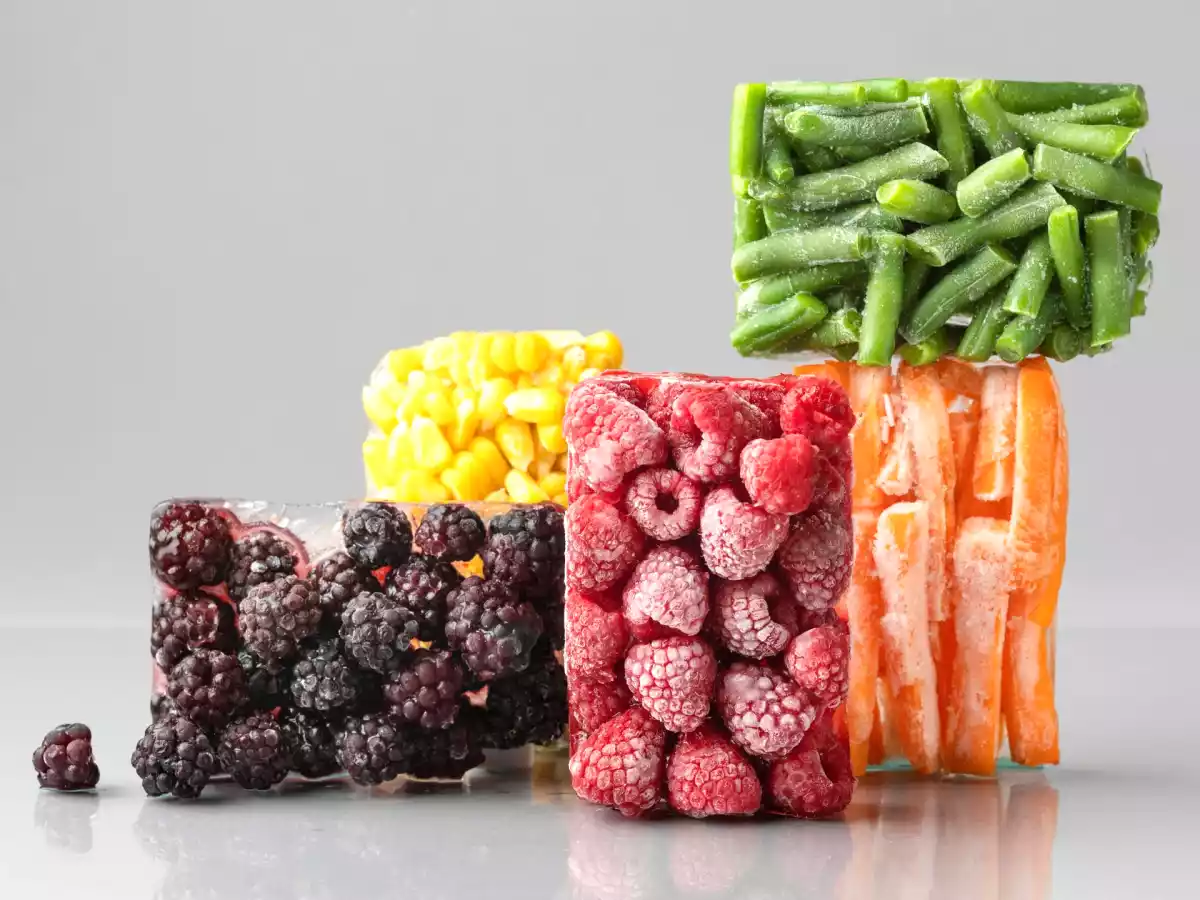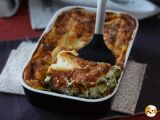Freezer Friendly: What foods can I freeze and for how long?

Freezing is one of the safest and most practical ways to preserve food, thanks to the ability of cold to slow the growth of bacteria. This system offers many advantages: it helps avoid food waste, allowing you to preserve fresh foods or leftovers that would otherwise be lost; it allows you to optimize your grocery shopping, buying in large quantities at cheaper prices; and it saves time, since you can prepare meals in advance and have them ready when you need them.
However, not all foods lend themselves to freezing, and for each it is essential to respect the maximum storage time to ensure quality and safety. What, then, are the foods that can be frozen? For how long? Find out in the next few paragraphs, where you will find useful tips and tricks to simplify your kitchen routine!
Vegetables
- Spinach, zucchini, carrots, peas and broccoli should be blanched before freezing to preserve texture, flavor and nutritional value. Blanching, which involves cooking vegetables in boiling water for a few minutes followed by rapid cooling in ice water, is used to deactivate enzymes that could deteriorate color and freshness during freezing. This process also helps reduce cooking time once thawed, making them ready to use for soups, side dishes, or stir-fry dishes.
Caution: Do not freeze fresh leafy vegetables such as salad: the cell structure breaks down during freezing, making them mushy and lacking crispness when thawed.
Fruit
- Strawberries, blueberries, bananas (preferably cut into slices or chunks for ease of use), mangoes, and pineapples freeze excellently, retaining their flavor and most of their nutrients. Before freezing them, it is advisable to wash them thoroughly, dry them and spread them out on a tray so that the pieces do not stick together, and then transfer them to freezer bags or containers. Once thawed, these fruits are perfect for making refreshing smoothies, creamy desserts such as ice cream and mousse, or homemade jams. Alternatively, they can be used directly frozen to enrich yogurt, cereal or cocktails.
Shelf life: up to 12 months.
Caution: do not freeze fruit with a high water content (such as watermelon): the formation of ice crystals alters its structure, making it mushy and watery upon thawing.
Meat
- Chicken, beef, pork and lamb keep perfectly well in the freezer, keeping flavor and nutritional values intact, as long as they are frozen fresh. For more practical handling, it is advisable to separate meat into individual portions or portions suitable for family consumption before freezing. This makes thawing easier and reduces waste by avoiding having to thaw more than necessary. Use well-sealed freezer bags or airtight containers to prevent freezer burn, which can compromise product quality.
Shelf life: 6-12 months (red meat), 9 months (chicken and turkey).
Fish
- Fish fillets, shrimp and shellfish should be frozen very fresh to best preserve flavor, texture and nutritional properties. It is important to gently rinse them under cold water, blot them with kitchen paper to remove excess moisture and, in the case of shellfish, remove any shells or impurities. We recommend portioning them into freezer bags or airtight containers, removing as much air as possible to avoid cold burns. For shrimp, you can choose to freeze them with or without the shell; with the shell they will keep more protected.
Storage time: 2-6 months.
Dairy products
Hard cheeses, such as Parmesan, Grana Padano and Pecorino, freeze very well, keeping flavor and quality intact. It is advisable to grate or cut them into pieces before freezing them so that they can be easily used in recipes. Fresh cheeses, on the other hand, such as mozzarella, ricotta or spreadable cheese, tend to lose texture and become watery once thawed, making them less suitable for direct consumption but still usable in cooked preparations, such as lasagna or pies. Milk and butter can also be frozen without difficulty. Milk should be divided into convenient portions before storing in the freezer, and once thawed it is important to shake it well to recompose the fats that might separate..
Shelf life: 3-6 months.
Caution: Do not freeze fresh cream: because of its high fat content, cream tends to separate into water and fat during freezing, compromising its texture and flavor.
Eggs
- Eggs can be frozen beaten (without the shell) to keep them longer without waste. Before freezing them, break the eggs into a bowl, beat them lightly to mix yolk and albumen, and pour them into freezer containers or bags, preferably portioning them (e.g., one or two eggs per container) for easy later use. Alternatively, you can freeze just the yolks or just the whites separately, adding a pinch of salt or sugar to the yolks to prevent them from hardening.
Shelf life: 10-12 months.
Caution: Freezing whole eggs with the shell on is most inadvisable. Expansion of the internal liquid can cause the shell to crack and contaminate the entire freezer.Ready-made dishes
- Soups and velvety soups: they freeze perfectly, keeping their creaminess intact. Remember to let them cool completely before freezing.
- Lasagna and cannelloni: Both cooked and uncooked, they freeze perfectly. Remember to divide them into individual portions before freezing.
- Pizza and pies: Both pizza and pies freeze perfectly once baked. Remember to wrap them tightly in plastic wrap to prevent them from drying out.
- Meatballs and meatloaf: Meatballs and meatloaf are a wild card in the kitchen. By freezing them either cooked or raw, you will always have a complete and tasty meal ready to reheat.
- Pasta Sauces: Make plenty of sauce and freeze it in single-serving portions.
Shelf life: up to 3 months.
Practical tips for freezing at its best
- Use suitable containers: Choose freezer bags or airtight containers to avoid freezer burn.
- Label everything: Write the date and contents so you always know what you have frozen.
- Freeze in small portions: Make thawing easier and reduce waste.
- Thaw slowly: Thaw dishes in the refrigerator to avoid temperature changes.
You might also be interested in:
 Daniele Mainieri
Daniele Mainieri

Comments